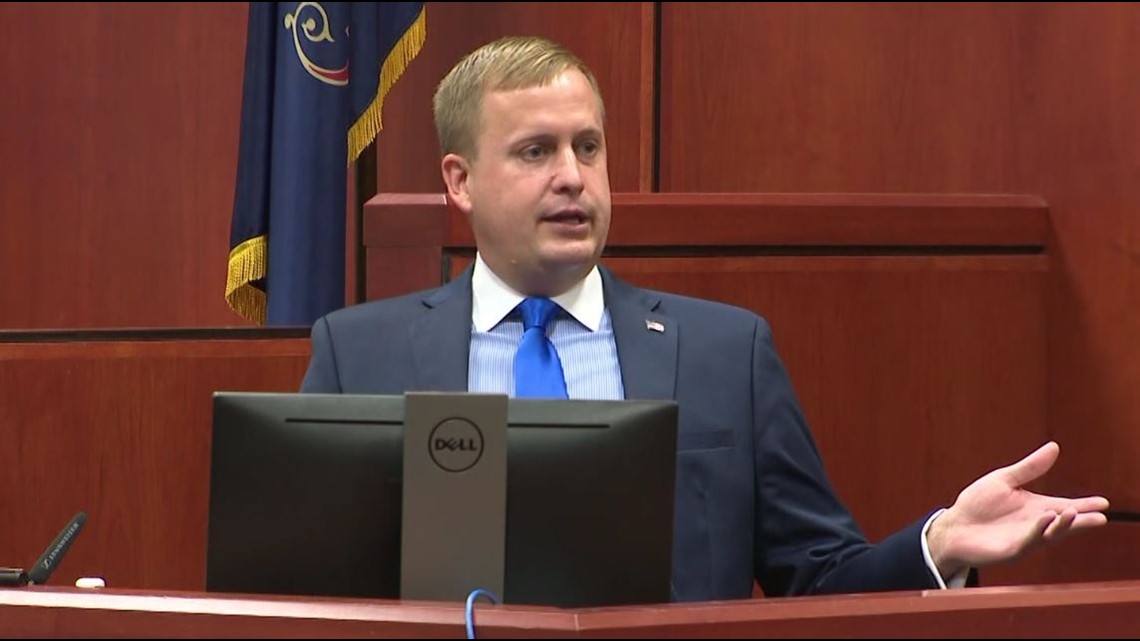BOISE, Idaho — This article originally appeared in the Idaho Press.
Jane Doe did not have to testify for the jury to arrive at a guilty verdict in last week’s rape trial of former state representative Aaron von Ehlinger. But why? The answer lies in Idaho law.
If she was subpoenaed, she would be required to testify or face a fine.
Some on social media have speculated that because of the Sixth Amendment, which states a defendant has a right to face witnesses against them in court, Doe should have testified.
However, Jane Doe was not subpoenaed by von Ehlinger’s defense attorney, Jon Cox.
“The law does not require a victim to testify in trial. If there is other sufficient evidence that’s presented during a trial, a jury uses that evidence and information they’re presented to reach a verdict,” Ada County Prosecutor’s Office spokesperson Emily Lowe said.
Doe ran out of the courtroom mid-testimony after she went blank on the stand, saying, “I can’t do this.” Ada County Deputy Prosecutor Katelyn Farley told the judge that Doe would not be back to finish her testimony, and the jury was ordered by the judge to strike what she said because the defense did not have a chance to cross-examine her — pretending like she was never there.
“A victim does not always testify in court. If the prosecution can make their case without the victim’s testimony, then they are free to do that. In some criminal cases, the victim is unavailable or could even be deceased,” said University of Idaho law professor, Aliza Cover.


Supporting witnesses testified to the rape, including sexual assault nurse Ann Wardle and Idaho House Sergeant at Arms Kim Blackburn, who told similar stories.
Wardle testified she examined Doe, and the victim told Wardle what happened. The nurse said she felt a bump on the back of Doe’s head, which Doe said was from pulling her head back in resistance from von Ehlinger’s use of force.
“If the defense subpoenas the victim to testify, that presents an entirely different question. An issue may also arise about unfair prejudice to the defendant if the victim begins to testify and then stops without the defense having the opportunity to cross-examine the witness,” Cover said.
It is unclear if Cox is going to appeal the conviction — but as for sentencing, the presiding judge is able to use discretion.
The judge in von Ehlinger’s case, Michael Reardon, can review evidence that was not admitted in court and take into account other actions in the courtroom that might be of interest to him.
According to Idaho Criminal Rule 32, the judge can order a pre-sentence investigation, which can include evidence of a hearsay nature, as well as previous charges, the defendant’s outlook on life and their values, their social history, etc.
It is unclear if the judge is going to take into account the ethics committee hearing, where multiple women alleged that von Ehlinger made them uncomfortable with his overtures.
This article originally appeared in the Idaho Press. Read more at IdahoPress.com
Watch more crime news:
See the latest Treasure Valley crime news in our YouTube playlist:

